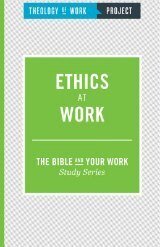Powered by Wisdom: My Fall and Rise in the Classroom
Blog / Produced by The High Calling
I know so little about power. I have it—as all of us do—and I use it, but it often feels like I imagine flying a plane. I might get lucky and keep it in the air for a while, but I really don’t know what I’m doing.
Workplace blogger Sharlyn Lauby says, “Now, the two biggest mistakes I see with people’s use of power revolve around (1) trying to use power they don’t have and (2) using the wrong kind of power to achieve results.”
I’ve made both of these mistakes.
In my early 20s, I took over a tough situation at an inner-city school. The previous teacher had crashed in a nervous breakdown, then was followed by two months of rotating substitutes while the kids sat on desks, scrawled gang symbols on the board, and wandered in and out of the classroom. Having Student-Taught down the hall, I knew the story. I approached the school superintendent and declared that I could help, if he’d give me a chance.
It was the fall semester. I graduated on Friday, and reported to work that Monday.
Power I Didn’t Have
The problem, as I quickly realized, was that though I established continuity and a better atmosphere for learning, I tried to use power I didn’t have.
I was the minority in the room. I had no experience. I had little cultural grasp of the trials my students faced at home, or how those trials affected their propensity to engage in school. And I had no ability at the time to see that the textbook content failed to connect with their lives.
All of this meant one thing: I lacked authority. Of the five powers listed in my interview with Dr. Rob Pepper last week: coercive, reward, legitimate, referent, and expert, I had none of them in spades. Plain and simple, the students didn’t buy me.
Confidence got me in the door, but the lack of power to be effective tempted me to walk back out of it.
Power I Didn’t Know How to Use
I stayed. I was new and had expected a learning curve. Plus, I cared for the students. Staying, however, pushed me toward Lauby’s second observation: I didn’t know how to use what little power I had.
If I could generalize my approach in that first year, I’d say that I began by relying on referent power—the kind that comes from being liked. Corny jokes and inexperience, though, do not an inner-city teacher make. So I added reward power by offering incentives. This helped for maybe half of the students (The rest didn’t care). Then I tried legitimate power by leaning on my position. “I am the teacher; you are the students” did not go over well.
In the end, on my worst days—like the day a kid whipped chalk at me so hard that it pulverized against the board inches from my head, covering me with dust and leaving a cone of material that had to be scraped from the slate surface—I resorted to the least beneficial and most desperate type of power: coercive.
“Go to the principal’s office!” “Sit down!” These and other forceful expressions, blurted out in difficult moments, reminded me that I was running out of options, sounding quite like my predecessor in the days just prior to her breakdown.
It would take two years before I found my place. Two years before I had any power to use and some knowledge of how to use it.
Powered by Wisdom
Power is funny like this. We’re weak without it, weak with the wrong kind, and weak with too much. What I learn from people like Rob is that I need to pay attention to power. Rob climbs the ladder at work because that’s one way power fits him. He knows this. And he pays attention to the dangers. At every rung, he recognizes where power is a gift and where it is an obstacle.
I’m still learning what fits me best. I’m still learning how to pay attention. But I’ve come to see what really matters, and the writer of Ecclesiastes nails it: “Wisdom makes one wise person more powerful than ten rulers in a city” (7:19).
I believe that I’d perform better if I were to step into that classroom again today after so many years of experience elsewhere--not so much for the power I’ve gained since then, but for the wisdom to know how to use it.
*****
For more about the five types of power, including two additional categories, read Vivian Giang’s 7 Powers Leaders Can Use for Good or Evil.
Read more of the work and faith obstacle series here:
- The Businessman and the Fisherman
- Young Professionals Pick Freedom Over Money
- Wanting More Power and Getting It
- Powered by Wisdom: My Fall and Rise in the Classroom
- Insecurity at the Office
- The Danger of Securing My Future
- 'Twas the Eve of My First Job
Image by Thomas Hawk. Used with permission. Sourced via Flickr. Post by Sam Van Eman, Young Professionals editor and narrator of A Beautiful Trench It Was.






